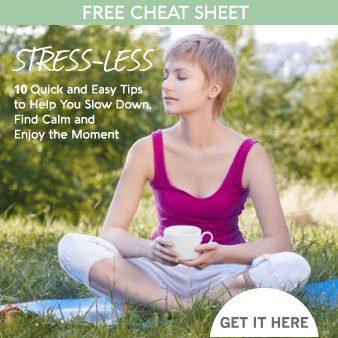“Has anyone here tried GABA?”
“What’s the best CBD oil to use?”
“My anxiety and depression is out of control lately, what vitamins and minerals do you recommend”
These are just some examples of the types of questions I see in numerous mental health Facebook groups and online forums and that I get asked on a regular basis.
And it’s completely understandable – firstly, psychiatric medications definitely don’t work for many people and often have unwanted side-effects and risks of addiction, plus there ARE really effective herbal and nutritional supplements that can help anxiety and depression.
But in the comments sections of these posts is where it gets muddy – there’s people who SWEAR by magnesium. Others who say GABA did nothing for them. And invariably, some shady MLM supplement-seller inviting people to “PM” her about the wonderful miracle cure she found.
There’s several problems with this approach that can at best cause you to waste a ton of money on supplements that may not be right for you, causing you to give-up on “natural medicine” altogether; or at worse, lead you to take something that could have more serious consequences.
Supplements and Drug Interactions
Just because something’s natural, it doesn’t mean it’s safe for everyone, ESPECIALLY if you’re also taking pharmaceutical medication. Way too often I see people who are on anti-depressant SSRIs asking their peers in FB groups if they should take St John’s Wort or 5-HTP. No! This is really dangerous, both of these supplements work on the serotonin pathway in the brain, and if you mix them with SSRIs it could potentially lead to life-threatening Serotonin Syndrome.
Also, if the SSRIs are not working, it’s unlikely that a herb or supplement that also works on serotonin is going to work – it’s most likely that a serotonin imbalance is NOT the root cause of the problem in this case, and you need to look for other potential causes. (Which highlights the importance of understanding HOW and WHY a particular supplement works in order to know if it’s right for you).
You Need to Uncover the Root Cause of Your Symptoms
I covered this in-depth in this post, but I’ll recap briefly here. Contrary to popular belief, anxiety and depression are not simply caused by chemical imbalances in the brain. There’s many different factors that can gravely impact mental health ranging from psychological (eg childhood trauma, negative thinking, poor coping skills) to situational (eg. dealing with financial pressures, loss, strained relationships, loneliness or chronic illness) to biological (eg poor diet, hormonal imbalances, hidden gut infections, inflammation, nutrient deficiencies). For many, it’s a unique and complex blend of several of them, and treatment requires a unique, personalised approach to be truly effective.
Please Stop Looking for a Magic Pill!
Which brings me to my next very important point…given that anxiety and depression can be caused by multiple factors that vary from one person to the next, sadly it’s unlikely that there’s one “magic pill” out there (whether pharmaceutical or natural) that will “do the trick”. The pharmaceutical industry has very much conditioned both patients and many orthodox doctors to over-value drug-interventions above all else…and it’s in mental health in particular that this is a deeply flawed approach. (Especially seeing as the drugs are often out-performed or at least found equal to safer lifestyle interventions such as exercise, diet and meditation in the scientific literature!)
The truth is, mental health requires a multi-targeted approach. Small shifts in several areas add up to a big improvement. A holistic approach needs to be MUCH more than just swallowing a bunch of supplements or meds.
You Can’t “Out-Supplement” a Poor Diet and Lifestyle
I remember seeing a middle-aged woman in clinical practice who was suffering from anxiety, depression, auto-immune thyroid disease and fatty liver. She literally plonked down 2 plastic shopping bags full of supplements she was taking, saying what a big fan she was of “natural medicine”. As I took her case history, it became clear she had a terrible diet that was worsening her symptoms, engaged in zero exercise or stress management, couldn’t sleep and drank a bottle of wine every night.
I explained the effect the diet and wine was having on all of her symptoms (especially her fatty liver!) and encouraged her to make some changes as well as start reducing her alcohol intake. (Alcohol is a known depressant and wine in particular can also worsen anxiety). She actually grew quite angry and demanded why I couldn’t just give her a supplement!
I tried to make her realise she didn’t need to take 2 bags full of supplements, that is wasn’t only a huge waste of money but that she’ll never resolve her symptoms if she’s constantly undermining her health with her poor diet and lifestyle choices. Well, this isn’t a miracle “she saw the light!” story unfortunately, she gathered up her bags of pills and left in a huff.
But my point is valid.
No supplement in the world is going to fix a poor diet and unbalanced lifestyle. Yes, they can help and have a very important place in a holistic treatment protocol, but they’re not the “most important” piece and shouldn’t be placed above any other interventions you’ve been prescribed, such as mindfulness, sleep hygiene, counselling, stress-reduction, exercise and especially diet.
If you truly want to take a natural approach, work with a trained and experienced practitioner that will take the time to do a thorough case-history, perhaps recommend specialised testing to get to the bottom of your symptoms as well as create a personalised, multi-targeted treatment plan that’s right for you.
This is exactly how I work with my anxiety and depression patients to make sure they’re taking the right supplements for them, and if this is something you’d like help with, you can check out my consulting service here.
Sharing is caring! Know someone suffering from anxiety or depression? Share this post with them!
And in the comments below please share your thoughts or questions, I love hearing from you!















Leave a reply